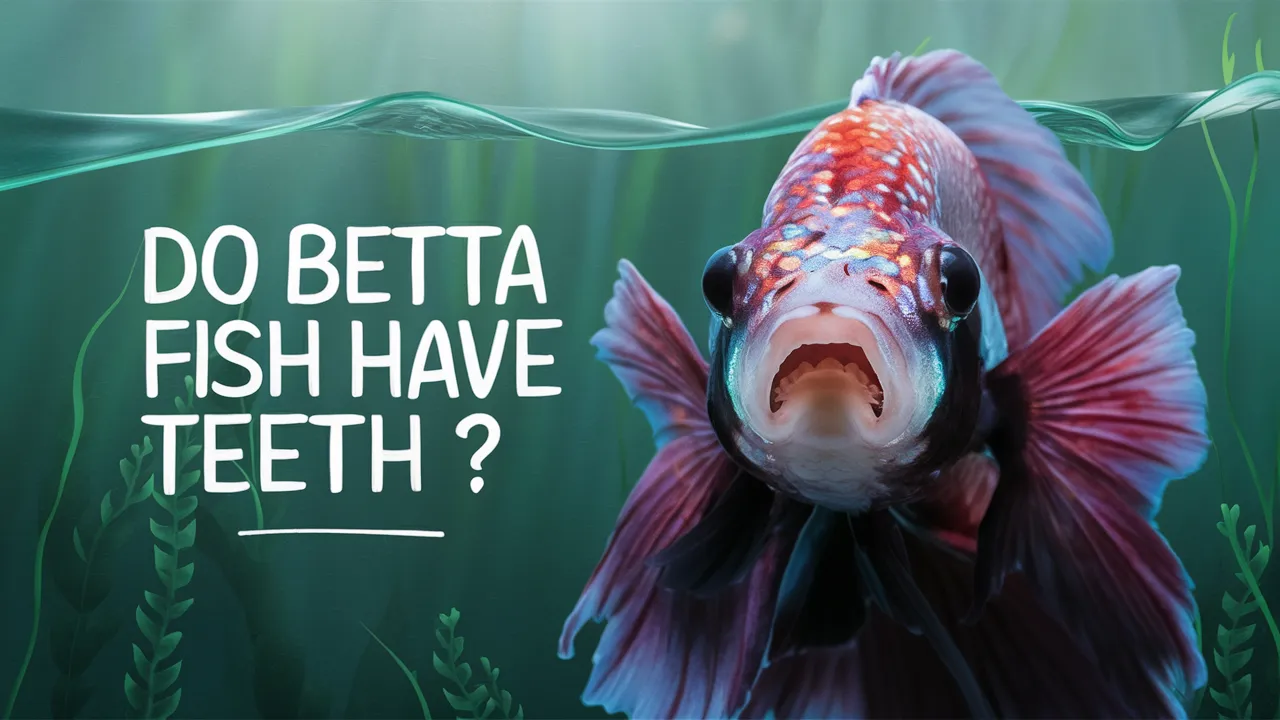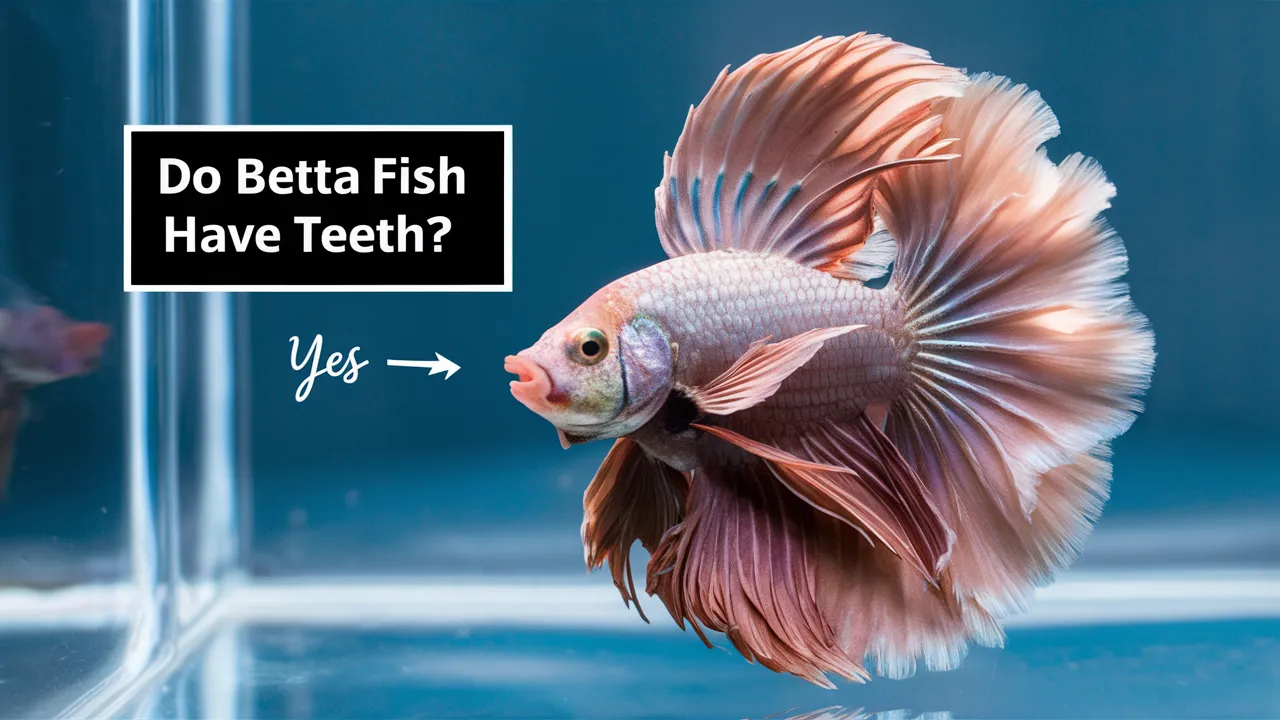If you’ve ever wondered, Do Betta Fish Have Teeth, you’re not alone! Understanding the anatomy of these vibrant creatures is essential for any aquarist. In this Betta Fish Guide, we’ll explore Betta fish teeth, their purpose, and how they affect the care of your fish. Welcome to the “Betta Fish Guide”!
The Truth About Betta Fish Teeth
Understanding Betta Fish Anatomy
Betta fish, scientifically known as Betta splendens, are renowned for their vibrant colors and flowing fins. But what about their dental structure? Let’s take a closer look at the betta fish mouth to understand more about their teeth.
Do Bettas Have Teeth?
Yes, betta fish do have teeth! However, they’re not the kind of teeth you might be imagining. Betta fish teeth are tiny, almost microscopic structures located in their jaws. These teeth are quite different from human teeth or even the teeth of larger fish species.
The Structure of Betta Fish Teeth
Betta Fish Mouth Structure
Betta fish have a unique mouth structure, adapted for their feeding habits. Their mouths are oriented upwards, allowing them to easily catch prey near the water’s surface.
Types of Teeth
Pharyngeal Teeth
Betta fish possess small, sharp teeth located in their pharynx. These teeth are used primarily for gripping and crushing food, rather than for chewing as in mammals.
Function of Betta Teeth
Betta teeth serve several purposes, including:
- Gripping Prey: Their teeth help capture small insects and other food sources in the wild.
- Defense Mechanism: Although Bettas are not aggressive by nature, they can use their teeth defensively if threatened.

The Role of Teeth in Betta Fish Life
Feeding Habits and Teeth Function
Betta fish are carnivorous by nature, primarily feeding on small insects and larvae in their natural habitat. Their teeth play a crucial role in this process:
- Gripping prey: The tiny, sharp teeth help bettas grip their food securely.
- Crushing exoskeletons: The teeth assist in breaking down the hard outer shells of insects.
- Directing food: Betta fish teeth help guide food items towards the throat for swallowing.
Territorial Behavior and Teeth
Interestingly, betta fish teeth also play a role in their famous aggressive behavior:
- Territorial disputes: Male bettas may use their teeth during fights with rival males.
- Fin nipping: In community tanks, stressed bettas might nip at the fins of other fish using their teeth.
The Evolution of Betta Fish Teeth
Ancestral Betta Fish and Their Teeth
The teeth of modern betta fish are the result of millions of years of evolution. Their ancestors likely developed these specialized teeth to adapt to their carnivorous diet in the shallow, vegetation-rich waters of Southeast Asia.
Comparison with Other Fish Species
When compared to other popular aquarium fish, betta fish teeth are unique:
- Goldfish: Unlike bettas, goldfish don’t have teeth in their jaws but have pharyngeal teeth in their throats.
- Tetras: Many tetra species have similar small, sharp teeth to bettas.
- Cichlids: Some cichlid species have more prominent, specialized teeth for their varied diets.

Betta Fish Teeth and Aquarium Care
Choosing the Right Tank Mates
Understanding that bettas have teeth and can be territorial helps in selecting appropriate tank mates:
- Avoid fin-nipping species
- Choose peaceful community fish
- Provide plenty of hiding spaces to reduce stress and potential aggression
Feeding Practices for Healthy Teeth
To maintain your betta’s dental health:
- Offer a variety of foods, including live and frozen options
- Provide foods that mimic their natural prey, like mosquito larvae
- Consider occasional treats like daphnia or brine shrimp to exercise their teeth
Caring for Your Betta’s Dental Health
Diet and Dental Care
While betta fish don’t require tooth brushing like humans do, their dental health is closely tied to their diet:
- Balanced nutrition: Provide a varied diet of high-quality betta pellets and frozen or live foods.
- Avoid overfeeding: Excess food can lead to health problems that may affect overall oral health.
- Water quality: Maintain clean water conditions to prevent bacterial growth that could harm your betta’s mouth and teeth.
Signs of Dental Issues in Bettas
Although rare, bettas can experience dental problems. Watch out for these signs:
- Difficulty eating
- Swollen or discolored mouth area
- Unusual aggression or lethargy
If you notice any of these symptoms, consult a veterinarian specializing in fish care.
Conclusion
As we’ve discovered, the question “Do betta fish have teeth?” opens up a fascinating exploration of these beloved aquarium fish. From their unique dental structure to the role teeth play in their feeding and behavior, betta fish continue to captivate aquarists and researchers alike.
Understanding the presence and function of betta fish teeth not only satisfies our curiosity but also helps us provide better care for these stunning creatures. By considering their natural adaptations, including their teeth, we can create more suitable environments and diets for our betta companions.
Remember, while betta fish do have teeth, they’re harmless to humans and are an integral part of what makes these fish so special. Continue to observe and learn about your betta, and you’ll uncover even more amazing facts about these charismatic little fish.

Related Posts
How To Tell Male And Female Betta Fish Apart? – Betta Fish Guide
Betta Fish Lifespan: How Long Do Bettas Live?
How To Clean Filter Socks In The Aquarium? Tips & Tricks